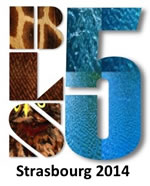|
|
|
Workshops > WS7This workshop is closed Making tags work
Johnson Mark 1, McConnell Bernie 1
1: Sea Mammal Research Unit, Scottish Oceans Institute, University of St Andrews, United Kingdom (markjohnson@st-andrews.ac.uk, bm8@st-andrews.ac.uk)
There is a constant need for smaller, smarter and more powerful tags in bio-logging science. To meet this need, tag builders and users are continually innovating in the design of hardware, software, and data processing algorithms. A large part of this innovation is invisible: if it works well we tend to forget that it exists and the technological details are seldom described sufficiently in papers. The idea of this workshop is to provide a forum to present and discuss these technical details. The workshop will encompass the hardware, software (both in situ and post-processing), and mechanical design of bio-logging systems, as well as practical issues arising from their use on different species. Emphasis will be on tricks of the trade to overcome limitations in bio-logging sensors and systems.
Topics will include some or all of: - Smart tags: robust methods for in situ data processing - Data compression for telemetry - Sensor calibration: pre-, post-, and data-driven calibration methods - Positioning: GPS, dead-reckoning and hybrid methods - Low power sensors for long-term tags - Describing orientation and movement with inertial, speed and heading sensors - Robust data analysis algorithms - Novel attachment methods - Inferring behaviour or physiological status from tag data - Low-cost bio-loggers
Participation is open to all but the workshop is particularly intended for scientists and engineers who specify, build or adapt tags or the data processing software that goes with them. Tag users or would- be users who want to understand more about the performance and limitations of bio-logging methods are also very welcome. The format will comprise an informal combination of invited and contributed short talks, as well as open discussion. Talks will not necessarily offer solutions - they may raise an issue or highlight a gap in our understanding. Depending on interest, outcomes could be a set of contributed algorithms, programmes and circuits, or a methods paper. The workshop will last a full-day and will include a lunch.
|


